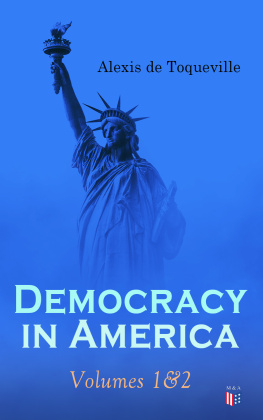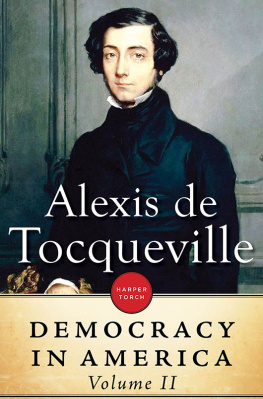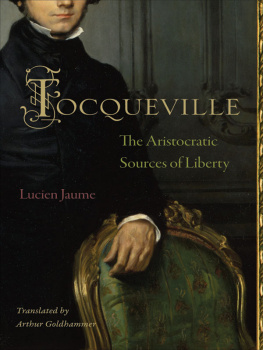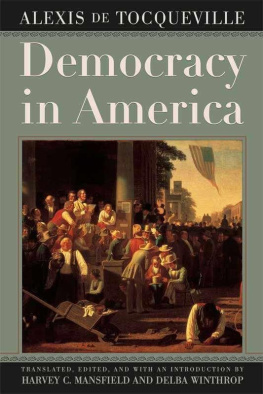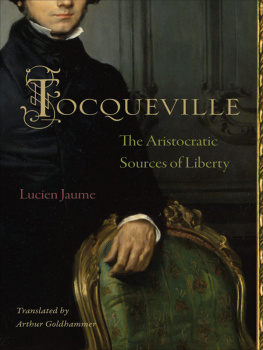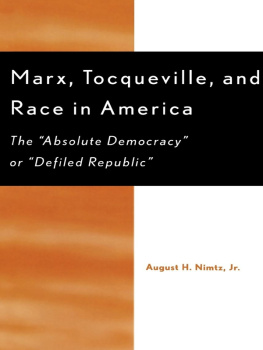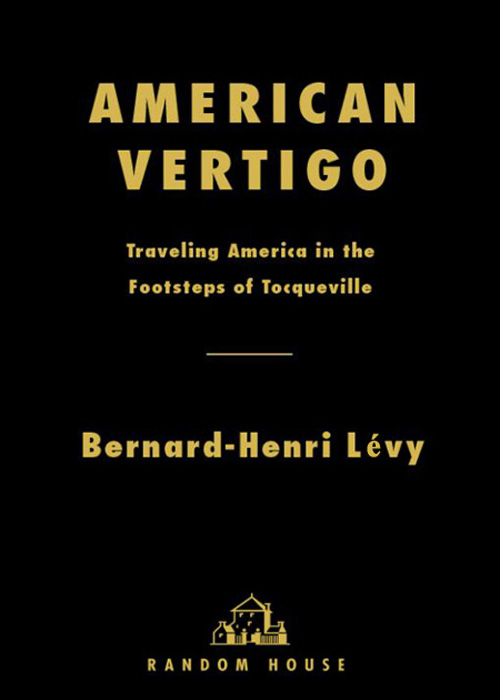
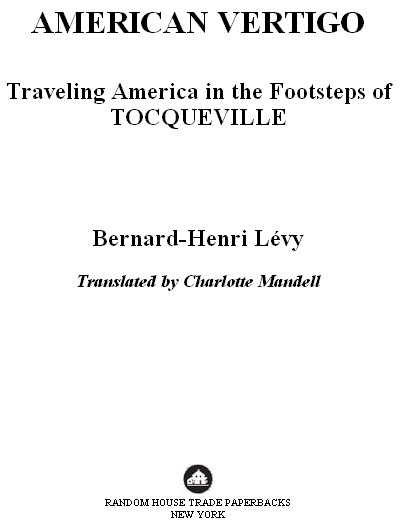
Table of Contents
To Cullen Murphy
Praise for American Vertigo
A kaleidoscopic cavalcade of wish-you-were-here postcards and ruminations. Elle
It is precisely because we know that Lvy is not a reflexive anti-American that his condemnation of our worst practices takes on a power of its own. Slate
A nuanced travelogue... Where Lvys book truly excels is in his razor-sharp political observations. The Denver Post
It is to American readers that Lvys book is dedicatednot the American left or the American right, but all Americans. Santa Cruz Sentinel
Perceptive, pugnacious, passionate... exquisitely written. The New York Observer
This books very serious hope for American renewal does offer an alternative to the sophisticated cynicism of those who have given up on the possibility of making meaning in the world by struggling for democracy in America. Bookforum
Levy never wavers. The virtues of this book... reside in his willingness to set his feet on the ground and report what he sees, to let context shape vision. Cleveland Plain Dealer
Whats most intriguing about Lvys project, and what truly separates it from Tocquevilles, is that he is primarily interested in Americas impression of itself. An outsiders view yields insights, but an outsiders view of how America thinks of itself is valuable for its contrast with the rest of the worlds opinions.Time Out Chicago
A jostling, animated portrait of America, full of resonances and contradictions. Fort Wayne Journal Gazette
Worth reading... [Levy] is acutely aware of the country s odditiesnot least its strange commitment to both freedom and order. The Economist
[Lvy] is a master of the vignette and the miniature.... While he finds serious fissures in this countrys social landscape, in the end he is an optimist about the future of a country he admires for the richness of its culture and its political vision.Publishers Weekly
Fascinating... an engaging but often-disturbing portrait of our nation from an eloquent, brutally honest foreigner who wishes our country well. Booklist
Mr. Lvy writes brilliantly.... American Vertigo is filled with insights and goodwill. The Wall Street Journal
Lvy is a true friend of the American experiment and a comrade in the American struggle against the barbarisms.The New Republic
Provocative... [Lvy is] a writer of enormous power and vitality.San Francisco Chronicle
It s difficult to remember when a writer of any nationality so clearly and thoughtfully delineated both the good and bad in America. [Grade:] A.Entertainment Weekly (Editors Choice)
An entertaining trip, as much in the tradition of Jack Kerouac as Tocqueville. The New York Times
Vigorous... impressive. The Boston Globe
EN ROUTE!
FOR A LONG time, Alexis de Tocqueville was perceived, in my country, as a second-rate author.
For a long time, a very long time, this apostle of freethinking, this prophet of the antitotalitarian trends of the end of the twentieth century, this precursor of Hannah Arendt whohad we known earlier on about his importancemight have saved us precious days and kept us from a fair number of pointless debates, this enlightened envoy, was hardly taught in French universities.
And the fact is that I spent the first half of my life regarding this theoretician, who also happened to be a fine writer, as most of my contemporaries did: as an old-fashioned, hiccuping aristocrat, an adept of lukewarm thinking and happy mediums, a quibbling, overscrupulous dilettante, a moaning sensitive, a sad Narcissus, a boring, reactionary public intellectual, a sententious activist, a man of wit who amused himself by posing as a writer, a failed politician, a pale imitator of Montesquieu, a lightweight version of his uncle Chateaubriand (who seemed to have preempted the entire gamut of attractive roles), the author of a Recollections that could be read only as evidence of an era that was by definition perishable and, prior to that, of the long account of a journey that had almost immediately fallen into the oblivion peculiar to topical writing.
Times, of course, would change.
With the collapse of the grand political theories, with the decline of the materialist visions of the world and their implacable, simple mechanisms, with the need, above all, to reflect on the failure of socialism, on the desirability of the very idea of revolution, and on the possibilities of democratic renewal, French intellectual attitudes would evolve and bring us closer to a form of thinking whose chief merit was to prompt the break of our sterile deadlock with the inheritors of the ideas of Auguste Comte and Karl Marx.
But for a long time indeed, this was the situation.
And, for my generation at least, for someone who came to philosophy near the end of the 1960s, at an ideological moment strongly dominated by radicalism and Marxism, for someone who, like me, was twenty years old in a France where the last word in fashionable thought was Mao Tsetung and where the new spiritmarked by boldness, intellectual and political prestige, intransigencecombined revolt with structuralism, freedom of thought with theoretical antihumanism, for the witnesses of this structural moment, at once enraged and unyielding, that was the prevailing trend of our youth; for people like us, ignorance of Tocqueville, this moderate spirit straddling the Old World and the New, the Orlans and the Bourbons, resignation to democracy and fear of revolution, was, Im afraid, commonplace.
All of this is to say that when The Atlantic Monthly wrote me to propose the idea of a new journey to America, when this venerable magazine offered to put me, 173 years later, in the footsteps of my illustrious compatriot, I knew much less about him than did Americans of average education and background, who had, for a century, recognized in Democracy in America not just a monument, not just a manual or handbook, but a kind of mirror where, as in westerns, as in Griffiths Birth of a Nation, as at Mount Rushmore, they contemplate the anticipated image of their virtues, their vices, the noble or ominous temptations they are confronted with, their providential birth, their destiny.
And this is also to serve as a warning that even if I obviously plunged into his texts right away, even if I took the time, before setting out, to go over my predecessors itinerary, even if my newfound interest, my wish to make up for lost time, as well as my desire to see this excellent mind at work, all led me to take up not just his book but his notes, his correspondence, his accounts of travels to Algeria, to England, to Switzerland, as well as the writings of his companion on this venture, Gustave de Beaumonteven so, you must not, alas, expect this book to honor to the letter the worthy and ambitious program proposed by The Atlantic: times have changed too much, the country has become too different from what it was when America ended at the shores of the Mississippi, and I myself, once again, am too recent an admirer of Tocqueville for this account, this travelogue, this daily journal, to be read as the reply, the extension, even the continuation or addition, of the prestigious model.
At the very most, whenever it was possible, I repeated some of the stages of his journeyfor instance, the investigation into prisons that was the official pretext for Tocqueville and Beaumonts journey and which I set about updating. There are several prisons in this text. Five, to be exact. And a sixth one, Guantnamo, which, as well see, is not unconnected to the other five, and whose most revolting and unacceptable characteristics can be quite directly explained by the general regime of detention that I was able to observe elsewhere and that says much, unfortunately, about contemporary America. I know that the idea of interrogating a penal system and expecting it to provide you with answers about the nature of the society that has bred it, the pattern of thought that seeks to expose the secret workings of a society by examining not just what it hides but the way in which it hides it and, once it has hidden it, excludes itI know that all of this has to do with a typically modern vision of things, one that is based on Foucault, and Nietzsche, and one that doesnt need Tocqueville for its formulation or execution. But in the end I still believe the two are intrinsically related. I dont think I would have lingered for so long in New Yorks high-security prisons, in the ruins of Alcatraz, or in the corridors of death row in Nevada and Louisiana if I hadnt had in mind the Tocquevillean precedent; I dont think I would have spent so much time, from the Quaker-inspired penitentiary in Pennsylvania to the camps at Guantnamo Bay, exploring the other side of the American scene, without this constrainta rather formal one, of course, but one that, like all formal constraints, may have served as an effective instrument for seeking truth and meaning.
Next page

